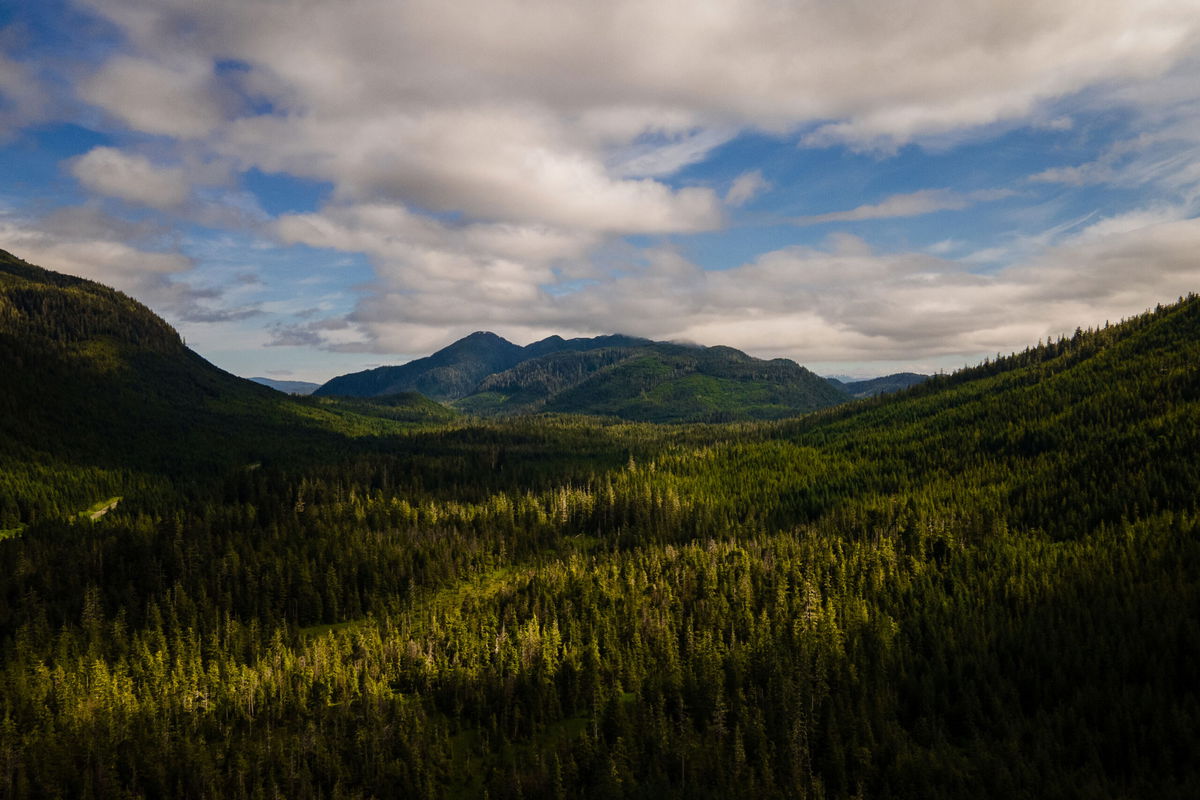Biden administration restores protections for Alaska’s Tongass forest

The Tongass National Forest on Prince of Wales Island
By Zoe Sottile, CNN
The Biden administration has restored protections for Alaska’s Tongass National Forest, the world’s largest intact temperate rainforest, sometimes called, “America’s Amazon.”
The new protections, announced on January 25, repeal the 2020 Alaska Roadless Rule that opened the doors for road construction and timber harvest in the forest and also restore “longstanding roadless protections to 9.37 million acres of roadless areas that support the ecological, economic and cultural values of Southeastern Alaska,” according to a Department of Agriculture release.
In 2020, President Donald Trump stripped protections from over half the forest’s acreage by exempting it from the original roadless rule implemented in 2001 during the last days of President Bill Clinton’s presidency. All five of Alaska’s tribal nations opposed the rollback.
Agriculture Secretary Tom Vilsack said in the release that the protections were crucial for preserving biodiversity, addressing the climate crisis and prioritizing the voices of tribal nations.
“As our nation’s largest national forest and the largest intact temperate rainforest in the world, the Tongass National Forest is key to conserving biodiversity and addressing the climate crisis,” Vilsack said. “Restoring roadless protections listens to the voices of Tribal Nations and the people of Southeast Alaska while recognizing the importance of fishing and tourism to the region’s economy.”
The forest spans a total of 16.7 million acres which, are “critical for carbon sequestration and carbon storage to help mitigate climate change,” according to the Department of Agriculture. By absorbing carbon dioxide, forests like the Tongass can help offset America’s greenhouse gas emissions.
The area is also a key tourist attraction as home to iconic Alaska wildlife such as eagles, bears, and salmon, according to the US Forest Service.
In addition to its environmental significance, the forest also has “immense cultural significance” for Indigenous Alaskans, according to the USDA release. The forest falls within the traditional homelands of the Tlingit, Haida, and Tsimshian tribes.
On Twitter, the Central Council of Tlingit and Haida Indian Tribes of Alaska said that with the rollback, the USDA had “rectified a critical issue for our people who are most impacted by decisions affecting the Tongass National Forest. The Tongass was wrongly exempted from the Roadless Rule and without meaningful tribal consultation.”
With the repeal, the forest will return to the 2001-era Roadless Rule that “prohibits road construction, reconstruction, and timber harvest in inventoried roadless areas, with limited exceptions,” the USDA news release stated.
Homer Wilkes, the USDA undersecretary for natural resources and environment, said the move “reflects our continued focus on listening to Tribal Nations and people in Southeast Alaska.”
“Protecting the Tongass will support watershed protection, climate benefits, and ecosystem health and protect areas important for jobs and community well-being — and it is directly responsive to input from Tribal Nations,” he said in the news release.
The-CNN-Wire
™ & © 2023 Cable News Network, Inc., a Warner Bros. Discovery Company. All rights reserved.

